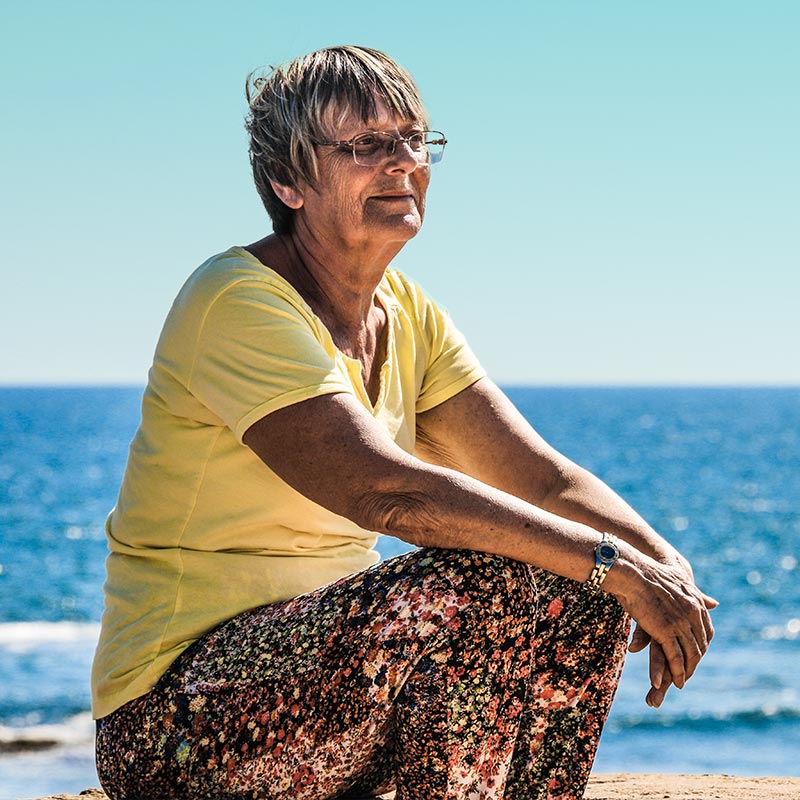Comprehensive treatment centers (CTCs) provide medication-assisted treatment and counseling to adults age 18 and older who are struggling with opioid use disorder. By offering a personalized combination of prescription medication and counseling, CTCs help adults achieve successful long-term recovery from opioid addiction.
Our Mission
To our patients,
We will provide you with the highest quality of care built on a foundation of integrity, compassion, responsibility, and clinical excellence.
To our employees,
We will offer an exceptional work environment that affords you the opportunity to consistently grow both professionally and personally.
To referring professionals,
We will strive to build and strengthen our partnership with you so that we can consistently adapt and improve our services in order to best meet your needs and the needs of your patients.
Our Vision
The vision of the Comprehensive Treatment Center Group Division is to set the standard for excellence in addiction treatment. We dedicate ourselves to ensuring that our patients receive quality care that is customized to their needs so that true healing can begin. Through a combination of medication-assisted treatment and counseling services, our staff thrives from the opportunity to make a difference in the lives of those we treat. Whether it is a patient’s first time receiving treatment or they have received services in the past, we will welcome them with the respect they deserve.
Our Values
It is our primary goal to foster an environment where patients will benefit from the values on which we have built our services. The following values are incorporated into every aspect of the treatment we provide:
Respect for our patients, our colleagues, and the communities we serve
Integrity in the way we deliver services and build professional relationships
Accountability in every decision we make and action we take
Excellence in the clinical care we provide
Reliability as a thought leader in our industry
Features of Medication-Assisted Treatment
Learn about medication-assisted treatment for adults who have been struggling with opioid addiction
When a person has developed opioid use disorder, any attempt to stop using these substances can quickly trigger intense withdrawal symptoms. Medication-assisted treatment, or MAT, incorporates the use of certain prescription medications to help individuals end their use of opioids without experiencing the physical or psychological distress of withdrawal.
When you take part in medication-assisted treatment at a comprehensive treatment center (CTC), you’ll meet with an experienced healthcare provider to determine which medication is best for you. This compassionate professional will assess your symptoms, discuss your options with you, and answer any questions you may have.
Depending on a variety of factors, you may receive a prescription for methadone, Suboxone®, buprenorphine, or naltrexone. Each of these medications has been approved by the U.S. Food and Drug Administration (FDA) for use in licensed medication-assisted treatment programs, and studies have determined that they are all safe for both short- and long-term use when taken as directed.
These medications prevent the onset of cravings and other symptoms of opioid withdrawal, yet they do not elicit the disorienting high opioid use produces. Thus, when you take an approved prescription medication as directed while you’re receiving care at a CTC, you can work, attend school, drive a car, and otherwise fully engage in a healthy and productive lifestyle.
Benefits of MAT & Counseling
Discover how counseling works in conjunction with medication-assisted treatment to help adults achieve long-term recovery from opioid addiction
Medications such as methadone, Suboxone®, buprenorphine, and naltrexone can alleviate the distress of opioid withdrawal. But medication alone can’t prepare you to achieve successful long-term recovery from opioid addiction. That’s why comprehensive treatment centers offer counseling in addition to prescription medications. Prescription medications allow you to regain your physical strength and mental clarity, while counseling helps you make the lifestyle changes that will enable you to pursue an opioid-free future.
Counseling sessions at CTCs are safe and supportive environments where you can learn about addiction and recovery, identify and address the challenges that may have contributed to your opioid use, and learn how to avoid relapse. Depending on a variety of factors, including your unique needs and the center at which you receive treatment, you may participate in individual counseling and group counseling.
Individual counseling sessions are one-on-one meetings with an experienced professional. During individual sessions, you can process your experiences, address topics that you may be hesitant to discuss in a group setting, and receive focused feedback from a member of your treatment team.
Group counseling sessions at CTCs typically involve a small number of individuals who are also receiving care for opioid use disorder, along with one or more treatment professionals. During group sessions, you can share your experiences; learn more about opioid addiction, treatment, and recovery; practice healthy communication and self-advocacy skills; and share support with others who have experienced similar struggles.
Comprehensive Treatment Centers (CTCs)
Explore the features of care at comprehensive treatment centers (CTCs) for adults who have developed opioid use disorder
Comprehensive treatment centers, or CTCs, provide medication-assisted treatment and counseling for adults age 18 and older who have developed an addiction to heroin, fentanyl, prescription painkillers, or other opioids.
When you enter treatment at a CTC, you’ll consult with a healthcare provider to determine what type of medication is best for you. Depending on which CTC you choose, your medication options may include methadone, Suboxone®, buprenorphine, or naltrexone. The CTC staff will monitor your progress and, if necessary, adjust your dosage level to ensure that you’re receiving maximum benefit from the medication that has been prescribed to you.
At first, you will be required to visit the CTC every day in order to receive your daily dose of the medication you have been prescribed. After a certain period of time, you may be able to earn the privilege of receiving a limited number of take-home doses so that you don’t have to visit the center every day. When you start treatment, the CTC staff will explain their policies and procedures about medication use, including the criteria for take-home doses.
Your treatment at a CTC will also involve counseling. Your treatment plan may include individual counseling, group counseling, or both. As described in greater detail in the “Benefits of MAT & Counseling” section, this service will help you make the lifestyle changes that will empower you to resist relapse and successfully pursue long-term recovery from opioid use disorder.


